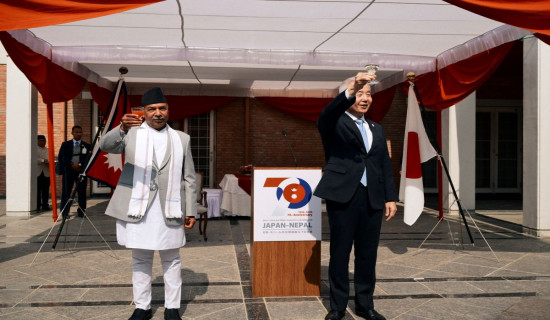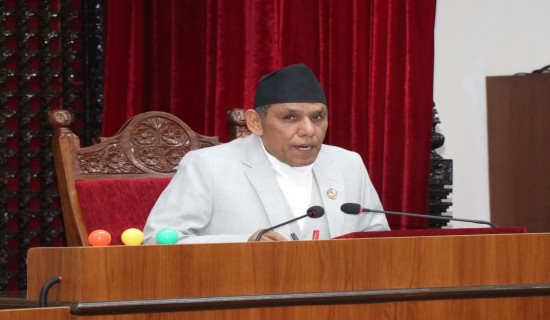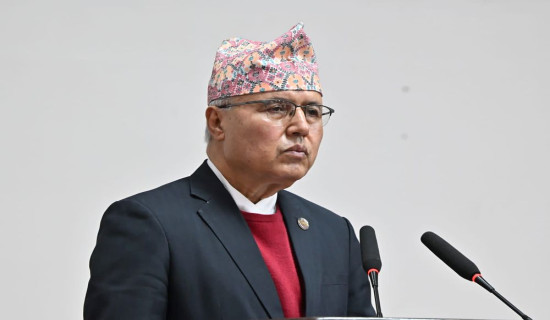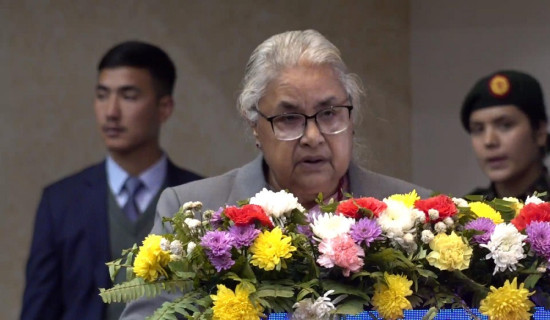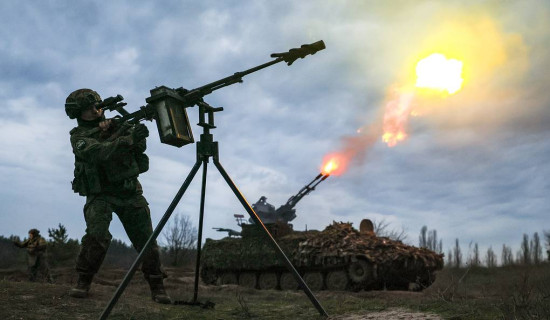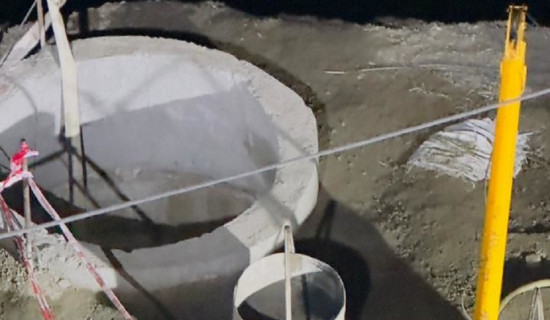- Wednesday, 11 February 2026
Has Schism Crept Into Coalition?
The current coalition government, after reaching the momentous 100-day milestone, encountered higher-level of dissatisfaction when key partners voiced their displeasure with the government’s performance. In the wake of criticism, numerous observers predicted that the government would face difficulties in the coming days, regardless of Prime Minister Pushpa Kamal Dahal Prachanda's intentions to incorporate new members into his cabinet from smaller coalition parties to strengthen his government's standing.
KP Sharma Oli, chair of the CPN-UML, the largest party in the ruling alliance, chastised the government for failing to consult with his party before presenting the federal budget and expressed dissatisfaction with the budget disbursement to ministries allotted to his party. A Rastriya Swatantra Party (RSP) leader said his party was even contemplating pulling its support from the government, accusing it of operating in the same old fashion and failing to deliver on a number of fronts. Oli also expressed discontent with “recent attacks” on him and his party, accusing them of their involvement in financial irregularities “from several quarters.” He described the assailants as anti-nationalists attempting to impede his party’s success and progress. These forces, Oli claimed, unfairly accused him of financial embezzlement with the intention of dismantling his party.
RSP discontent
Similarly, RSP leader and Minister of Youth and Sports Biraj Bhakta Shrestha issued a threat, stating that all RSP ministers may leave the government at any time because they have resignation letters in their hands, and that the government has continued to perform in the same manner as it did before the RSP joined the coalition three months ago. His party joined the coalition government, assuring the people that it would offer something fresh and commendable to the country. The UML and RSP's discontent has much more to do with recent attacks from opposition parties than with the government. Opposition parties accused these two key components of the present ruling alliance of corruption and misuse of authority.
Several senior Nepali Congress leaders recently accused UML chair Oli of being involved in the Giribandhu Tea Estate land fraud, which Oli denies vehemently. The opposition parties, led by Nepali Congress, claimed that Oli altered legislation during his premiership to benefit from the exchange of valuable tea estate land in Birtamod, Jhapa district, with cheaper properties elsewhere in the same district. The tea plantation property dispute has indeed landed Oli in hot water.
Meanwhile, the situation surrounding RSP chair Rabi Lamichhane is complex and difficult. His alleged role in the cooperative scam, as well as his ownership of passports from the two nations, have placed him in legal trouble and generated criticism from his opponents. Despite this, he remains a major member of the government as Minister of Home Affairs and is eager to defend his reputation and come clean of the charges against him.
Two key partners of the ruling alliance found themselves at odds with each other when Oli’s remarks against Minister Sumana Shrestha and chair Lamichhane left RSP leaders infuriated and disturbed. In a private meeting, Oli said that Minister Sumana Shrestha was appointed as a minister while she was visiting Nepal with her spouse, who is a foreigner. Likewise, comparing RSP chief Lamichhane to a hapless sparrow, Oli described the Nepali Congress’ attack on him as using cannon shells to kill such a little bird. RSP leaders and workers interpreted statements from a senior coalition leader as an insult to the party.
Regardless of their significance to the ruling coalition, the two top UML and RSP leaders are uncomfortable with what is happening against them at present. Moreover, the ruling coalition is faced with another quandary: if either of the two decides to quit the coalition, the government will collapse due to the lack of a necessary majority. Hence, the government authorities are keen to discourage any action being taken against these leaders. Many people suspect that the UML and RSP’s criticism of the government is a ploy designed to pressure the government and Prime Minister Prachanda into preventing opposition parties and government agencies from taking damning action against them.
Meanwhile, present-day politics includes a new dimension. The Nepali Congress has done everything possible to break the current ruling alliance. The single largest party in parliament is said to have sent fillers to the UML in order to create a new coalition government of the two largest parties in the House, resulting in a nearly two-thirds majority. This would enable them to make necessary changes to election law shortcomings, which are a significant source of worry in today’s politics.
Self-preservation strategy
The RSP and its chair have sought to avoid any uncomfortable future situation, such as receiving a negative verdict from the Supreme Court and the parliamentary investigative committee. As an alternative, the party might think of leaving the current coalition and joining forces with the Congress. However, given Lamichhane’s firm opposition to the Nepali Congress, it is highly unlikely that the RSP would abandon the current alliance solely to appease the Congress.
In conclusion, although it may seem that the two major coalition partners are deeply dissatisfied with the government and engaged in aggressive behaviour, it is highly probable that this is merely a strategy for self-preservation at this crucial juncture. We must also remember that these parties’ attitudes towards the government may shift depending on how Prime Minister Prachanda reacts to their demands and grudges. PM Prachanda, a seasoned politician, knows how to handle his coalition members’ wants and concerns in order to keep them satisfied and, most importantly, keep the coalition bandwagon rolling.
(Upadhyay is the former managing editor of this daily.)









